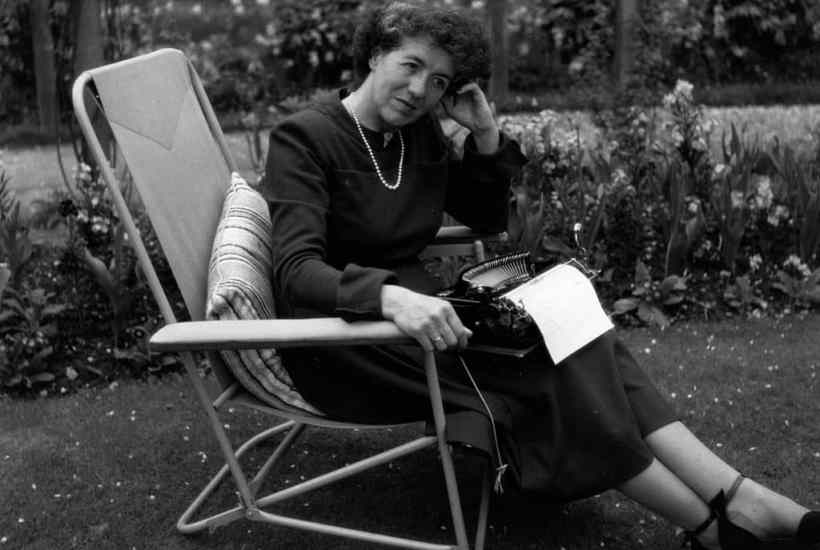Once again, people are getting their knickers in a twist over Enid Blyton. Such is the capacity for outrage these days, the same accusations are recycled on a biannual basis. This time around it’s The Magic Faraway Tree that’s in the spotlight. For those unfamiliar, this 1943 tale features a fantastical array of plots and characters aimed at delighting young children. Three siblings stumble upon an enchanted wood where they befriend Moon-Face, Silky the fairy, the Saucepan Man, Dame Slap, Mr Watzisname and the Angry Pixie. At the top of a magical tree they find a ladder which takes them to a different land each time they visit. It really is that surreal.
Enid Blyton is one of the most popular children’s authors of all time. Her books have sold over 600 million copies worldwide and have never been out of print since her death in 1968. In 2008, she was voted the UK’s best-loved writer, ahead of JK Rowling, Jane Austen and William Shakespeare. Blyton’s stories are fun and easy to read with attention-grabbing plots. No one reads Blyton expecting literary merit, gritty realism or political lessons. She deals in pure pleasure.
Of course, in today’s puritanical times, nothing can simply be fun. So Blyton is held to account for reflecting the racism and sexism of her time and punished for still being popular today. Repeatedly. Yet rather than dropping their embarrassing cash cow once and for all, publishers opt instead for progressive updates. The Faraway Tree books have already suffered revisions: in the 1990s, characters Dick and Fannie became Rick and Frannie. Dame Slap, the disciplinarian school teacher, became the far more restrained Dame Snap.
Now, Dame Jacqueline Wilson has been drafted in to rewrite The Magic Faraway Tree. She comes to the task fresh from having modernised E. Nesbit’s classic The Railway Children so as to foreground not the spirit of adventure but a grimmer reality of the children’s isolation and anxiety.
With The Faraway Tree, it’s Blyton’s sexism Wilson wants to root out. So, when Moon-Face asks Silky the fairy to help around the home so the boys can get on with more exciting stuff, he gets a lecture on gender equality from Mia, an older girl who ‘explains why he should not say that’. She tells him that:
‘In the modern world girls are just as clever as boys, and sometimes cleverer.’
Publishers seem to assume that if children hear stories about girls getting busy with the washing up while boys have fun, then they will be destined for life as a housewife. Heaven forbid! Clearly, the women who now dominate the publishing industry cleverly managed to avoid this fate. They survived a childhood of sexist literature yet still made it through university and into influential careers.
They pulled off this amazing feat because literature is only a small part of even the most bookish child’s life. So what if children read the odd story about girls doing the cleaning when their daily reality is seeing mum going off to work, big sister away at university and women teachers, doctors and dentists? It is this reality, far more than fiction, that shapes children’s aspirations.
And then there’s the ability of even the very youngest child to separate fantasy from reality. Few parents have to explain to their tiny tots that no, trains cannot really talk to each other, there are not really enchanted lands at the tops of trees and people can’t really fly like superheroes. Children instinctively know that fiction exists in a separate realm to reality, stories live in a world where normal rules do not apply.
For this reason – and despite the Guardian’s claims to the contrary – Jacqueline Wilson is the very worst person to produce a Magic Faraway Tree update. Wilson specialises in gritty reality: she writes about adoption, divorce, poverty, manic depressive mums, domestic violence and terminal illness. Enchanted fantasy this is not. No social problem is too bleak Wilson won’t cover it in a children’s story.
In Blyton’s Faraway Tree, Wilson wants to strike a blow for gender equality. But who wants to be hectored in the middle of a story? Lectures on girls being just as clever as boys are tedious and break the spell of fantasy. Introducing children to the idea that some things should not be said is a premature warning to them to watch their words and self-censor.
A certain type of middle-class parent has long sought to turn their child’s every waking moment into a learning experience. Now it seems that a young child’s life must also be one long opportunity for political awakening. Let’s leave the Faraway Tree just as Blyton intended it and give the kids a break.
Got something to add? Join the discussion and comment below.
Get 10 issues for just $10
Subscribe to The Spectator Australia today for the next 10 magazine issues, plus full online access, for just $10.



















Comments
Don't miss out
Join the conversation with other Spectator Australia readers. Subscribe to leave a comment.
SUBSCRIBEAlready a subscriber? Log in